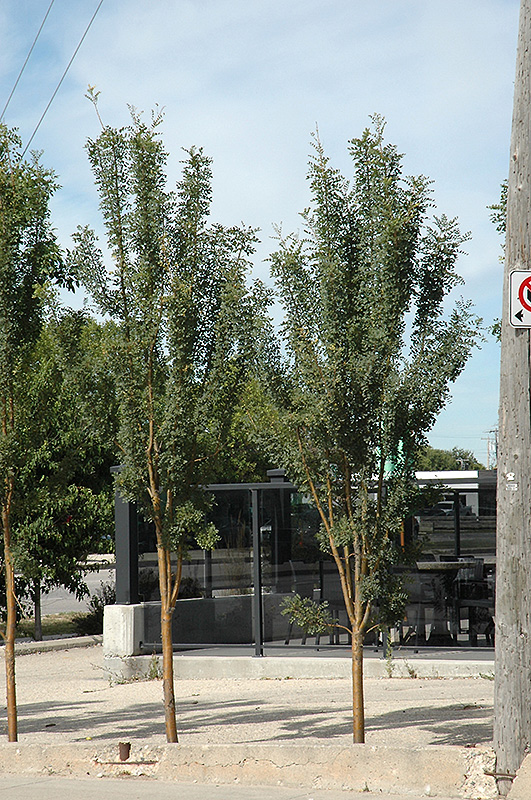Height: 20 feet
Spread: 10 feet
Sunlight:
![]()
![]()
Hardiness Zone: 2
Other Names: Siberian Peashrub, Caragana
Description:
An upright columnar form of the species, useful for adding some dynamics to the landscape skyline or for tall hedges and screens; extremely tough and tolerant of dry sites, extremely hardy
Ornamental Features
Sutherland Peashrub is primarily valued in the landscape for its rigidly columnar form. It has yellow pea-like flowers hanging below the branches in mid spring. It has light green deciduous foliage. The round pinnately compound leaves turn yellow in fall. The smooth olive green bark adds an interesting dimension to the landscape.
Landscape Attributes
Sutherland Peashrub is an open deciduous tree with a strong central leader and a narrowly upright and columnar growth habit. Its relatively fine texture sets it apart from other landscape plants with less refined foliage.
This tree will require occasional maintenance and upkeep, and can be pruned at anytime. Gardeners should be aware of the following characteristic(s) that may warrant special consideration;
- Suckering
- Spiny
Sutherland Peashrub is recommended for the following landscape applications;
- Vertical Accent
- Hedges/Screening
Planting & Growing
Sutherland Peashrub will grow to be about 20 feet tall at maturity, with a spread of 10 feet. It has a low canopy with a typical clearance of 2 feet from the ground, and is suitable for planting under power lines. It grows at a medium rate, and under ideal conditions can be expected to live for approximately 30 years.
This tree does best in full sun to partial shade. It prefers dry to average moisture levels with very well-drained soil, and will often die in standing water. It is considered to be drought-tolerant, and thus makes an ideal choice for xeriscaping or the moisture-conserving landscape. It is not particular as to soil type or pH, and is able to handle environmental salt. It is highly tolerant of urban pollution and will even thrive in inner city environments. This is a selected variety of a species not originally from North America.

